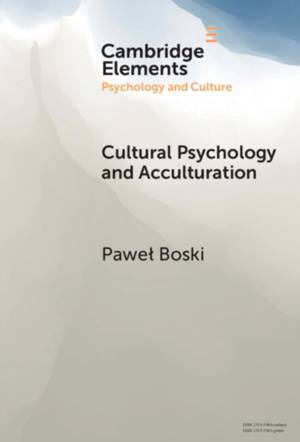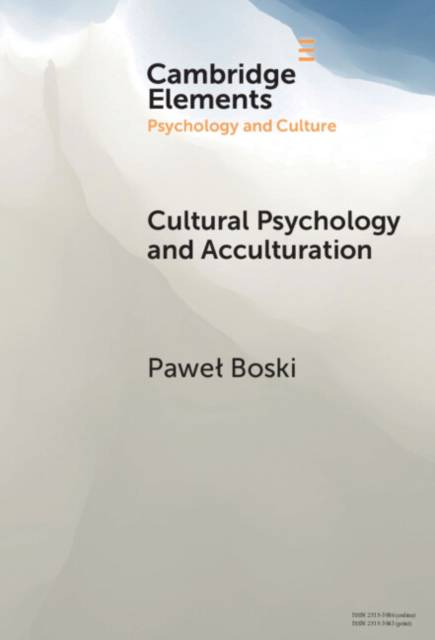
Door een staking bij bpost kan je online bestelling op dit moment iets langer onderweg zijn dan voorzien. Dringend iets nodig? Onze winkels ontvangen jou met open armen!
- Afhalen na 1 uur in een winkel met voorraad
- Gratis thuislevering in België vanaf € 30
- Ruim aanbod met 7 miljoen producten
Door een staking bij bpost kan je online bestelling op dit moment iets langer onderweg zijn dan voorzien. Dringend iets nodig? Onze winkels ontvangen jou met open armen!
- Afhalen na 1 uur in een winkel met voorraad
- Gratis thuislevering in België vanaf € 30
- Ruim aanbod met 7 miljoen producten
Zoeken
Omschrijving
This Element offers a new theoretical model of acculturation within the general framework of cultural psychology. It is divided into four sections. First, cross-cultural and cultural orientations are contrasted. The psychology of economic migration (EARN), separate from the psychology of acculturation (LEARN), is the theme of the next section. Berry's model of acculturation preferences is discussed in section three. It serves as a contrasting reference point for the tripartite model of bicultural competencies, developed in the final section. The three interconnected components are symbols, language, and values/practices characterize both enculturation and acculturation. As a second culture learning process, acculturation is not restricted to immigration. It may take a vicarious (remote) shape in the home country. Reaching bicultural competencies and identities, in the long run, is the proposed outcome of acculturation.
Specificaties
Betrokkenen
- Auteur(s):
- Uitgeverij:
Inhoud
- Aantal bladzijden:
- 116
- Taal:
- Engels
- Reeks:
Eigenschappen
- Productcode (EAN):
- 9781009451055
- Verschijningsdatum:
- 9/05/2024
- Uitvoering:
- Hardcover
- Formaat:
- Genaaid
- Afmetingen:
- 152 mm x 229 mm
- Gewicht:
- 326 g

Alleen bij Standaard Boekhandel
+ 209 punten op je klantenkaart van Standaard Boekhandel
Beoordelingen
We publiceren alleen reviews die voldoen aan de voorwaarden voor reviews. Bekijk onze voorwaarden voor reviews.











